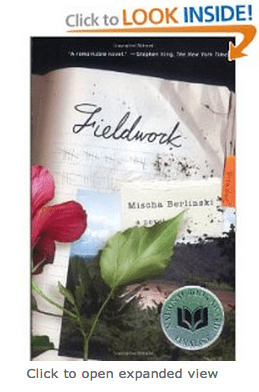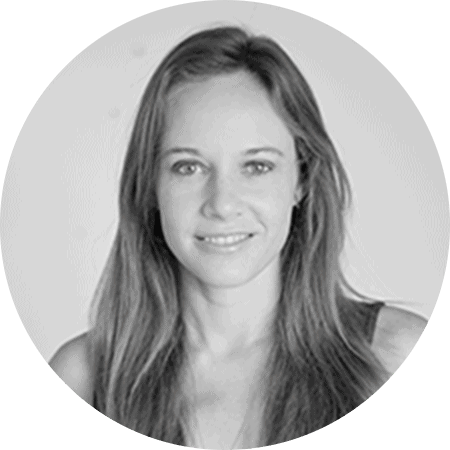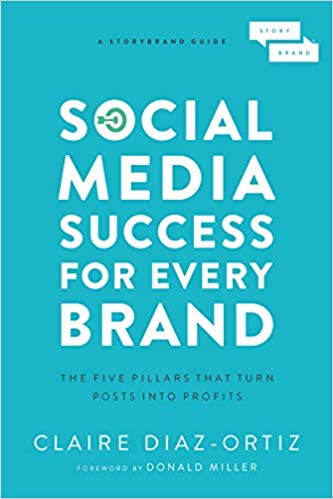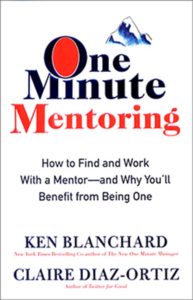I read a lot. This week I finished my 63rd book of 2013, meaning I’m well on my way accomplishing my 150-book annual goal by New Year’s Eve. That said, I don’t read a lot of novels. Last year, I can count on ten fingers the number of novels I read among the 150 books I finished. (Including Fieldwork, which I loved, pictured above.)
There are various reasons for why I don’t read more novels, and none of them are very good.
1. I Feel Guilty that I “Should” Spend My Reading Time “Learning Something”
Probably the most clear reason I don’t read more novels is because I have an internal guilt alarm (clock? monitor?) telling me that if I am going to spend 3 hours reading a book, it better darn well teach me something. Is this stupid? Yes. Is this healthy? No. This is something that isn’t helping me, and if you’re anything like me, it’s likely not helping you either.
2. I Don’t Have a Long History of Loving Novels
This is the better reason in my arsenal of poor reasons for not reading novels, and it has a long history in my life. Since I was younger, whenever I wanted to read something NOT prescriptive (a business or self-help book, say), I gravitated towards memoirs. Some mild obsession with “real” stories seemed to be the driver, and it’s something that stuck with me for ages. This is not something I can change, and not something I need to change, really. It’s a reality.
3. The Content I Consume Recommends Nonfiction More than Fiction
Another clear reason I read more nonfiction simply has to do with what I’m exposed to. The content I read in the form of blogs, magazines, and online articles more often than not recommends nonfiction books, meaning that I have an ongoing list of nonfiction books that I want to read. In short, when I don’t go out of my way to look for book recommendations in the world, nonfiction ones consistently fall in my lap. So I end up reading nonfiction. Could I change this? Yes. I could easily spend a tiny amount of time and expose myself to more fiction recommendations.
All in all, these are some pretty sub-par reasons for not reading more fiction. Especially given that my word of the year is REST, I should be looking for ways to ensure that reading is as enjoyable as it can be. Although I do enjoy business books immensely, there is an argument to be made that I would perhaps I would feel more rested reading a novel or two.
So, have you read any good fiction of late you can recommend?





Northanger Abbey. It’s a Jane Austen classic. Quick and cute read.
I really liked Ron Rash’s Serena.
Resting to me equals reading novels. I just can’t stop my mind from buzzing with everything connected with my own life until I am immersed in someone else’s life. And good fiction can teach you a lot, albeit in much subtler ways than non-fiction – so you can tell yourself that to quiet the accusing voices.
I would recommend The Curious Incident of the Dog in the Night Time, by Mark Haddon (it teaches you about Asperger’s syndrome), or Jan Karon’s Mitford books (very, very relaxing and pleasant read), Francine Rivers (I was skeptical to begin with, but her books draw you in almost immediately, and don’t let you put them down – I liked The Last Sin Eater, and Leota’s Garden). Another author I like is Alexander McCall Smith – a Scottish author who always makes for a lovely, witty read. My favourite series is The 2 and a Half Pillars of Wisdom – that is, if you’re up for a good dose of British humour.
I agree with you, Claire, and I share the (jaded) view that novels feel like a waste of time. Plus, they’re often r e a l l y long.
But I seem to recall that someone’s word of the year is “rest.” 🙂 A classic novel from the Great Books of the Western World could combine rest with the learning of what so many others have deemed classics.
Rest is productive too. It’s just that no one applauds it and it certainly pays very little.
Mostly I agree. But even in my non-fiction writing, I want to be a good story teller. That’s why I read fiction here and there. Good read: The Spellman Files.
I LOVE historical fiction. The good writers do a ton of research, so you feel like you are learning about history while getting lost in a great story. A few to start you out:
Someone Knows My Name
City of Dreams
The Shoemakers Wife
Hope you like them! xo
I would always recommend The 13 1/2 Lives of Captain Bluebear by Walter Moers. (http://www.amazon.com/Lives-Captain-Bluebear-Walter-Moers/dp/1585678449)
Even those more realism-minded love to use their imagination in this fun, curious book! 🙂
I just finished Sarah Sundin’s Wings of Glory series. If inspirational fiction appeals to you, these novels, set during World War II, contain plot lines and twists to keep your attention from first page to last. I’ll definitely be watching for more of her books.
The Night Circus by Erin Morgenstern – it is beautiful and imaginative…
http://www.amazon.com/The-Night-Circus-ebook/dp/B004J4WKTW/ref=sr_1_1?s=books&ie=UTF8&qid=1366055123&sr=1-1&keywords=the+night+circus
I’m reading your book right now – and liking it 🙂 I have something of the opposite problem to you – I’d prefer to read a story usually, rather than non-fiction. It amazes me that you can read so many books in a year.
I wanted to note that I think it’s possible to learn something from novels too. Though they are maybe not designed to teach, they can accidentally do so. Sometimes even about yourself. Maybe you could make it a game, to find something in each novel that you learn from. 😉
For instance, I read ‘The fault in our stars’ by John Green when travelling a couple of weeks ago. It’s easy to read, nice characters, and beautiful sentences – I think written for ‘young adults’. It’s main character is a girl dying from cancer ( I know it sounds gloomy, but it isn’t at all ). It swings through humor and sadness, and made me think of unfinished stories from people in my life, and some of their experiences. So I learned to look at some things a little differently because of it, and I think I’d read it again one day.
My word of the year is ‘complete’. To complete more things that I start – really complete them, and to feel more complete in myself. I have a lot of books I want to complete too – you inspired me to at least make a list.
I too loved “The fault in our stars.” Growing up, all I’d read for fun was fiction. As an adult then, I read non-fiction. Now, mid-life I try to balance both, but find reading fiction often more enlightening!
Raney, by Clyde Edgerton, is a quick reading, hilarious account of a mismatched couple – a scream. Warning, though, of southerner’s ignorant use of the n word, which fits the story, much like the excessive cursing in New Jack City.
I agree with the Curious Incidence recomendation above – very good story.
An Incidence of the Fingerpost, by Iain Pears, is an amazing historical mystery with a uniquely twisted storytelling style – the same story from 4 point of views, each one offering more insight into what happened.
I love reading novels and they don’t feel like a waste of time because there’s something to be said for learning to tell a story with depth. Non fiction loses that (as it should).
Have we connected on Goodreads? It’s great in theory but I’m struggling with the execution.
Recent reads I’ve loved: Music for Torching, The Cider House Rules, A Home at the End of the World, Kafka on the Shore and (this is sheer joy) Breakfast at Tiffanys
I enjoy your blog Claire, so thanks. And I was delighted to read this post as I feel guilty that I cannot spend too much time in someone else’s imagination knowing that there are treasures about the world I haven’t heard about yet.
BUT – I really enjoyed Jeannette Well’s “Half Broke Horses” — based on her grandmother’s stories so not all novel.
I know when I get older I will be able to settle into a good story and enjoy…so delighted to have all these suggestions to get me started.
I’m the same – I read a lot of non-fiction for work and not so many novels either. Have been known to stop midway through novels that aren’t great. (Then there are books that EVERYONE SHOULD READ, supposedly, but that I can’t make it through. I only got to page 100 of 50 Shades of Grey. Ha.)
I did however just read an awesome book called Goodbye For Now by Laurie Frankel which I would recommend.
I have the exact opposite problem. Reading fiction is my escape / downtime / getting out of my head. I prefer a sci-fi / fantasy, mostly to get out of “real”.
I agree with you. I get my fiction fix at the movie with some popcorn.
E.E.Borton is a new Author who has published
3 novels in the last 2 years . All his reviews
are 4 and 5 stars . He moves people in the most
amazing ways and his characters are incredibly
unique . Not to mention his style of writing is
so real you will see the novels unfold before
your very eyes . I could not recommend him more.
I read a fairly even balance of fiction and non-fiction. And agree with your reason #1 & #3. I have always had a love affair with the novel. I enjoy meeting new characters and getting to know them (btw, I’m a big fan of the series).
May I suggest:
Outlander by Diana Gabaldon. Historical fiction, 18th century Scotland. Great characters (a little hokey in the beginning.)
Still Life by Louise Penny. Mystery set in Quebec province. This is the first in the series and while good, is not the best one. Unbelievably deep characters. I savor her work
Also, you may want to consider signing up for http://www.goodreads.com/about/us It is a great social media website you can use to track your reading & keep up with friends’ choices. And the best feature is the “compare books” with your friends. You are given a percentage of how similar your tastes are with your friends. Very cool.
I read a mix of fiction and non-fiction, and try to switch the genre after about 3 books. Some good fiction for you 🙂
Freedom, by Jonathan Franzen, is wonderful (one of those awkward books where you probably know some of those characters, or are one of the characters). Read it in a weekend.
The fault in our stars, mentioned above, is indeed lovely. I cried.
World according to garp- fabulous
Stones from the river.
Enjoy! I love your blog 🙂
One of my all time favorites is “The Celestine Prophecies” by James Redfield
Good books? Wow. What a question. I was an english major before I discovered that they don’t pay people to read books, so I switched to engineering. I could spend my life reading.
What do I learn from reading? Empathy for other people, other ways of life, other experiences. I don’t have to experience a loss or a pain, I can discover some part of that experience through fiction. And I can even imagine an experience that could never be.
I grew up with the guilt of reading fiction. My mother was a reader, and my dad fussed about it all the time. He was legally blind, but a hard physical worker, and (despite books on tape) he did not see the value in reading anything that did not teach him anything. A few years ago my dad was diagnosed with cancer and was initially very depressed about his inability to perform the physical tasks that brought him joy (and his own form of escape) through the years. My mother, hoping to alleviate some of his depression, ordered some books (one more time) that she thought he would enjoy. Tarzan books from his childhood, then Louis L’amour, and later Michener. She moved on to the classics – challenging his stereotypes with books like To Kill a Mockingbird and Steinbeck. My dad died a year ago. And before he died, he apologized. Reading was worthwhile, he said. I am sorry I ever told you you were wasting your time. I am sorry that I did not learn this sooner in my life.
In the two years my dad was ill he read hundreds of books, sometimes two or three a day.
I’m much the same way… I feel like I want to be learning something when I’m reading and gravitate to memoirs. I just finished the audiobook of Lean In and started on My Life in France with Elizabeth the Queen on the go on my iPad. I’ve been trying to work through JK Rowling’s The Casual Vacancy but my memoirs keep calling me back. The most engrossing novels I’ve read recently were (with the exception of Gone Girl) in the Young Adult genre. The Hunger Games trilogy kept my rapt attention and The Night Circus was great as an audiobook with its stirring imagery.
I think that speaks to your third point. I seem to find myself surrounded by recommendations from non-fiction fans and Childrens’/YA Librarians. I don’t actually mind that too much.
Your ‘mild obsession with “real” stories’ doesn’t necessarily deliver truth or completeness. I once heard someone in publishing describe it this way. ‘If the subject of any biography were to read their biography they would sigh “Ah, my secret is safe.” But if Natasha Rostova were to read “War and Peace” she would cry out “Oh, I’ve been exposed!”.’
Ha! That’s an amazing anecdote — and true;)
I don’t think I’d recomend the same books to everyone. For you, let’s try “The Circle” by Dave Eggers.
Skinny Legs and All by Tom Robbins
Anything by Paul Auster.
He is probably the best contemporary author. Amazing character development in his works.
I honestly think the safest bet for fiction are classics, like Charles Dickens (he’s my personal favorite) or historical fiction pieces, like The Paris Wife.
Anything that has research-heavy or time-relevant content (think, Jane Austen books, or war-time novels) would be worth reading because you would learn something in addition to reading a great plot and meeting amazing (fictional) characters.
Try historical fiction about a time period/location that you don’t know a lot about. When you finish the novel, you’ll be interested in learning more about the actual events during that time/location as it will feel like you learned something new while reading fiction.
I feel the same way! You read my mind with #2. I enjoyed reading the novels we had to in school but as an adult when I read stories like Eat, Pray, Love and Lean In, I’m much more inspired. I kept buying business and design books so I decided to try reading The Signature of All Things by Elizabeth Gilbert, I highly recommend!! I’ve really been enjoying it and it actually does teach.. The history of botany as accounted in the book is amazing.
Cheers!
Claire! I learn something every time I read a novel; something about myself, the world, the time during which the work was written, the culture, etc. Literature can be a window on the author’s time and place in history, and a really valuable tool for learning about people, attitudes, values, etc. – just as valuable as a memoir. Don’t ever feel guilty for not spending that valuable time reading something “substantial.” Good literature is worth reading. That being said, if it’s not what you’re into, don’t let anyone tell you you’re missing out for not reading what *they* think is “good.”
Hi guys!
It’s a same feeling, I don’t read fiction books or novels. I spend most of my time reading Self Help books, Business books and Biolography.
Every time I am reading a self help book, my mind and my soul gets connected to real life, I get motivated, the desire to do great things grows quickly.
I felt in love with non fiction books cause they changed me on how I use to think. Information is very powerful what ever you feed in your mind it can either build you or destroy you, so I feel fiction books as zero impact to my life.
Before I go could like to recommend few of you here to read these books.
Napoleon Hill- Think Big Grow Rich
Rich Dad Poor Dad- Robert Kiyosaki
Success With A Positive Mental Attitude-Napoleon Hill
The Richest Man In Babylon
Capitalist Nigger
The Four Hour Week
$100 start up
Cash Flow Quadrant- Robert Kiyosaki.
I love business and those books engaged me in action and not to wait and to think big.
you can email me on kenphiri91@yahoo.com, if you could like me to share with you.
Ken Phiri,
Lusaka Zambia
Hi Claire,
I believe that we need to have a balance on fiction and non-fiction books. Because, I realized that if I do not read any novels-with full of beautifully imagined descriptions- for long time, I start to use poorer vocabulary during my conversations. Also that novels are valuable for my imagination and my self-journey because my brain is not trying to learn something consciously and it is just a storytelling session.
Besides, I believe you can sometimes find both in one book, especially the novels from the authors who are journalists and traveled in many countries. I remember I learned from that novels lots of information from some cultures and countries.